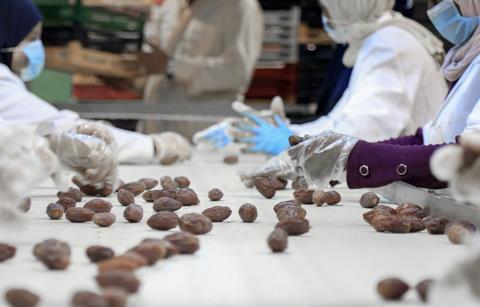Ayham Fakheralden of Spectra Dates tells Fruitnet that “massive money” is being invested in the sector

Jordan’s date industry is seeing steady growth, with “massive money” being invested in the sector.
That is according to Ayham Fakheralden of Spectra Dates, an exporter based in the country.
“The area planted with date palms in Jordan is about 4,500 hectares, and the rate of increase in areas and production is estimated at about 10-15 per cent annually,” he told Fruitnet.
”The current number of trees is estimated at about 750,000,” Fakheralden outlined. ”Production quantities amount to about 35,000 tonnes of various types, including about 22,000 tonnes of Medjoul dates and the rest are Barhi and other types. This represents about 14 per cent of the estimated global production of Medjoul dates.”
In terms of financing, the volume of direct and indirect investment in the Jordanian date sector exceeds more than half a billion dollars, he explained.
Meanwhile, the annual working capital is estimated at US$60mn, an increase of about US$10mn over last year.
”The number of workers in the sector is about 10,000 job opportunities, including about 40 per cent female workers, and the annual growth rate is estimated at 15 per cent in this field,” said Fakheralden.
”Jordan is considered the country with the highest export percentage of local production, 65 per cent of dates.”
One specific variety is seeing much more demand than before, he confirmed.
“We have noticed greater demand year after year and Jordanian Medjoul dates, which is ranked as one of the most prestigious dates in the world,” Fakheralden continued.
”Many countries were hardly consuming any dates and only recently started to import the product, thanks to its valuable nutrition. Jordan exports Medjoul dates to about 24 countries.”
Water and skilled labour have been historical challenges when it came growing Medjoul Dates in Jordan, so ”a lot of money and resources” have been invested to train staff, who have also studied the trees’ need for water and installed systems to control it.
”Jordan and our farm will continue to grow 10 per cent to 15 per cent per year, as we’re planting new trees, while at the same time many of our trees are still not fully mature yet,” Fakheralden concluded.



